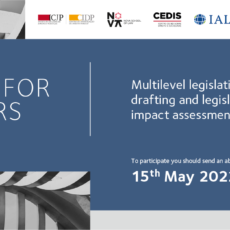
The President of the Commission is in charge of the Commission’s policy direction and sets the agenda of the College meetings.
The College discusses and adopts policy documents, legislative proposals, holds orientation debates, and decides on positions to be taken on external relations matters or inter-institutional issues. The College will be seized of all European Parliament Resolutions, requesting that the Commission submit legislative proposals.
The European Commission’s (EC) activity is guided by four fundamental working methods principles: 1) Whole of government approach , 2) Geopolitical , 3) One in, one out and 4) Communication .
The “One in, one out” principle aims to ensure that regulation is targeted, easy to comply and does not add unnecessary regulatory burden, in order to make people’s lives easier and to allow businesses the time and space they need to grow.
The EC must always have the leeway to act where needed. At the same time, it must send a clear and credible signal to citizens that its policies and proposals deliver and make life easier.
Every legislative proposal creating new burdens should relieve people and businesses of an equivalent existing burden at European Union (EU) level in the same policy area. The Commission will also work with Member States to ensure that, when transposing EU legislation, they do not add unnecessary administrative burden.Proposals must be evidence-based, widely consulted on, subject to an impact assessment and reviewed by the independent Regulatory Scrutiny Board. They must respect the principles of proportionality and subsidiarity and show the clear benefit of European action.
More information here.






